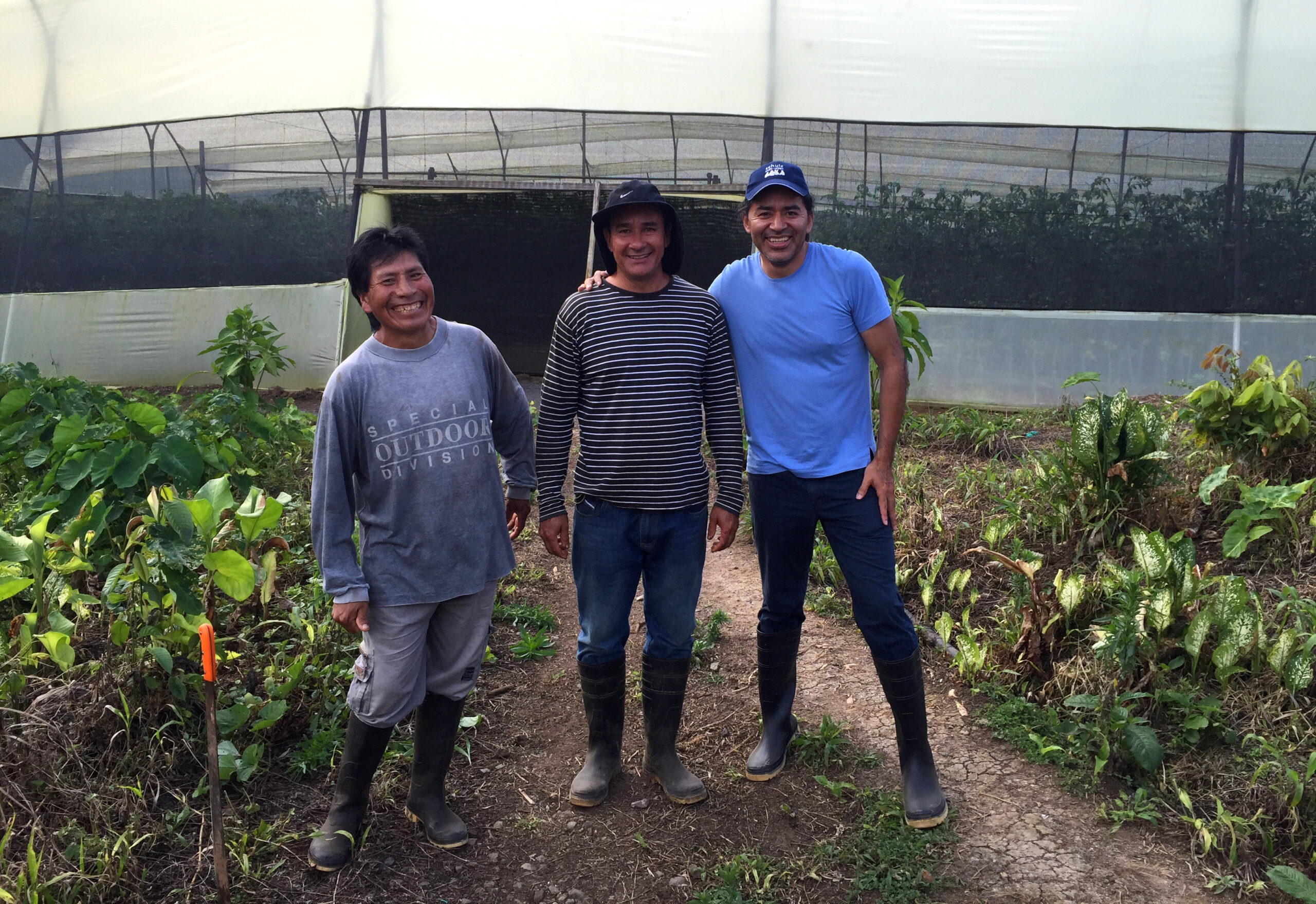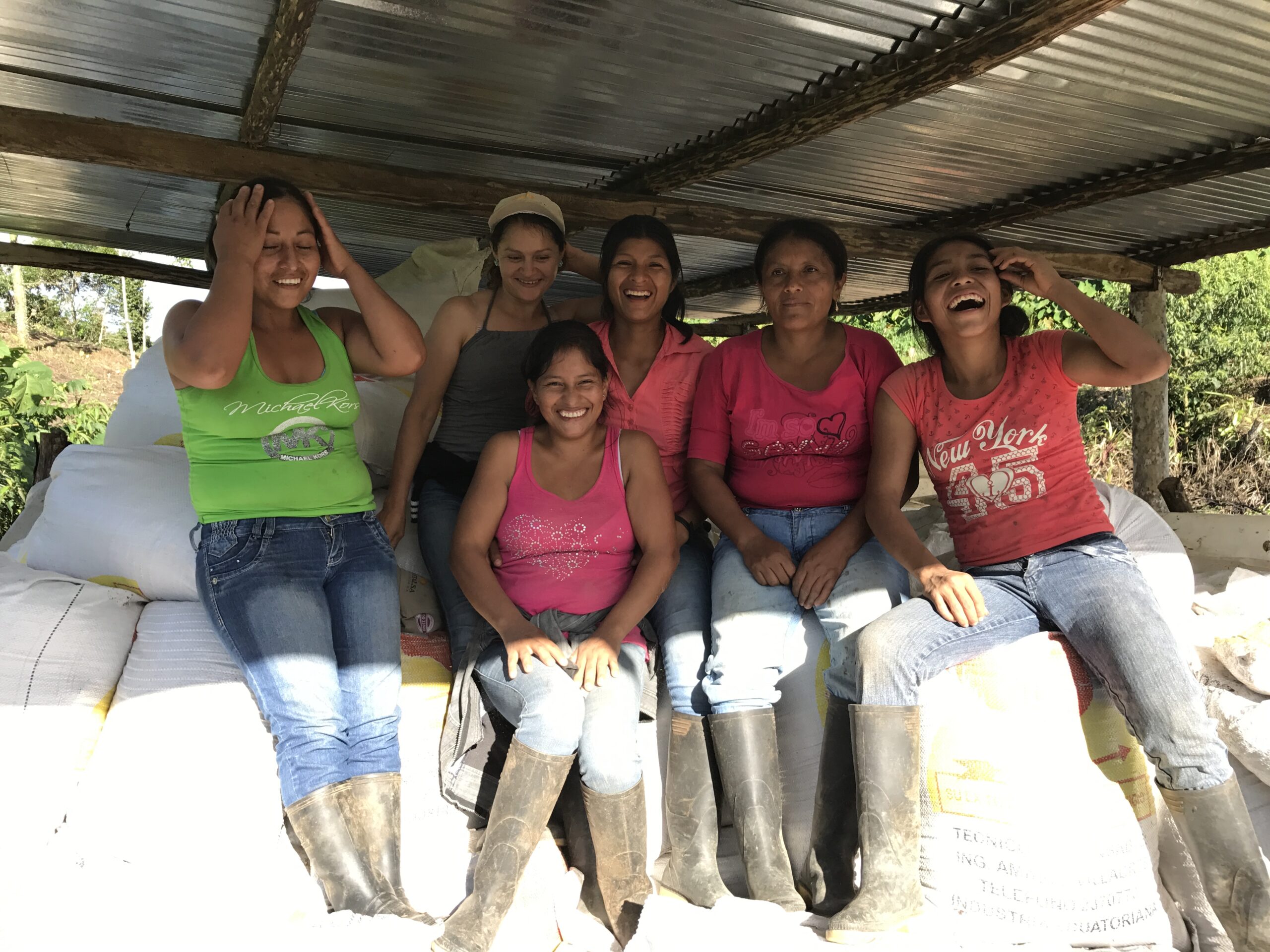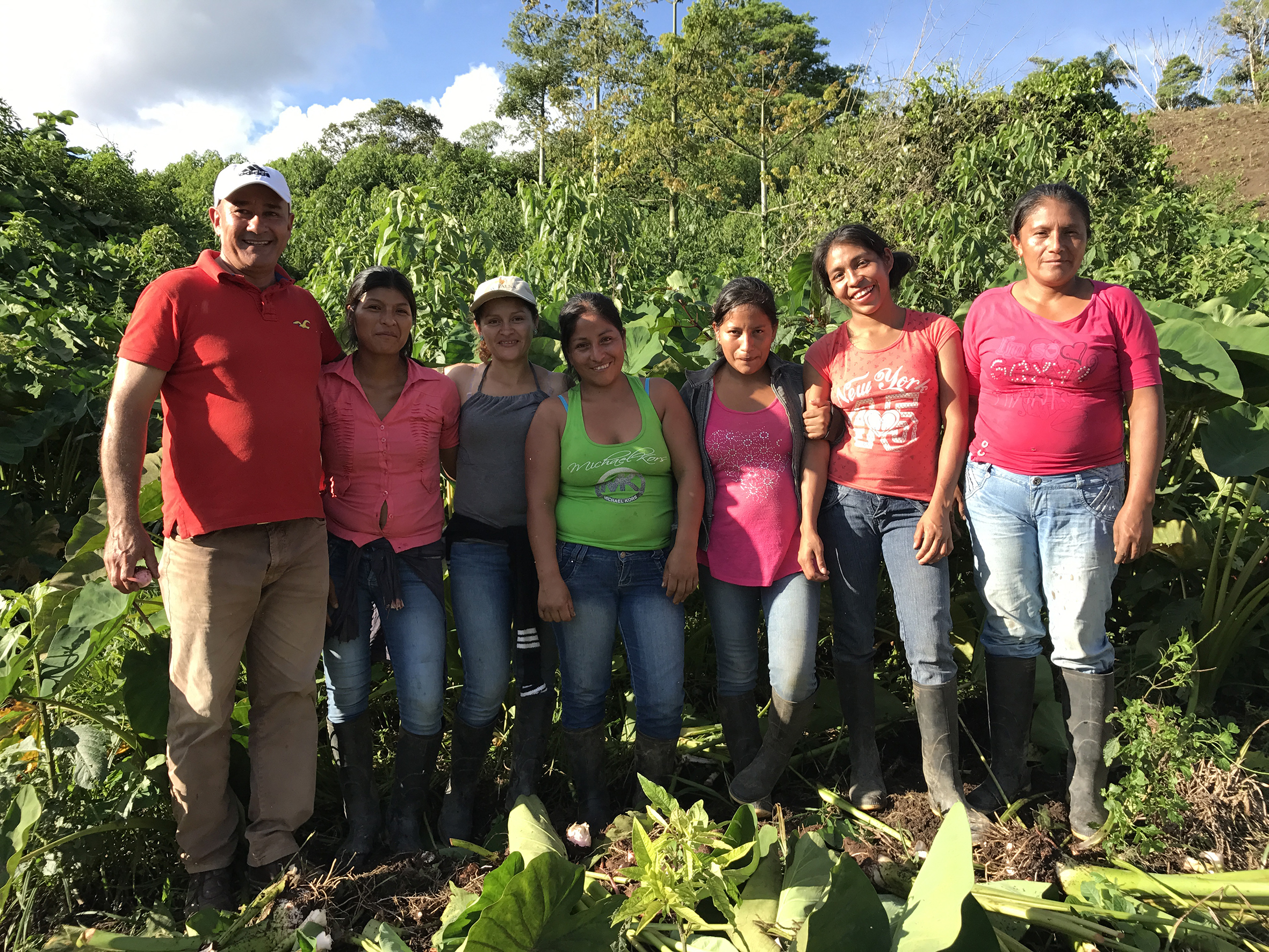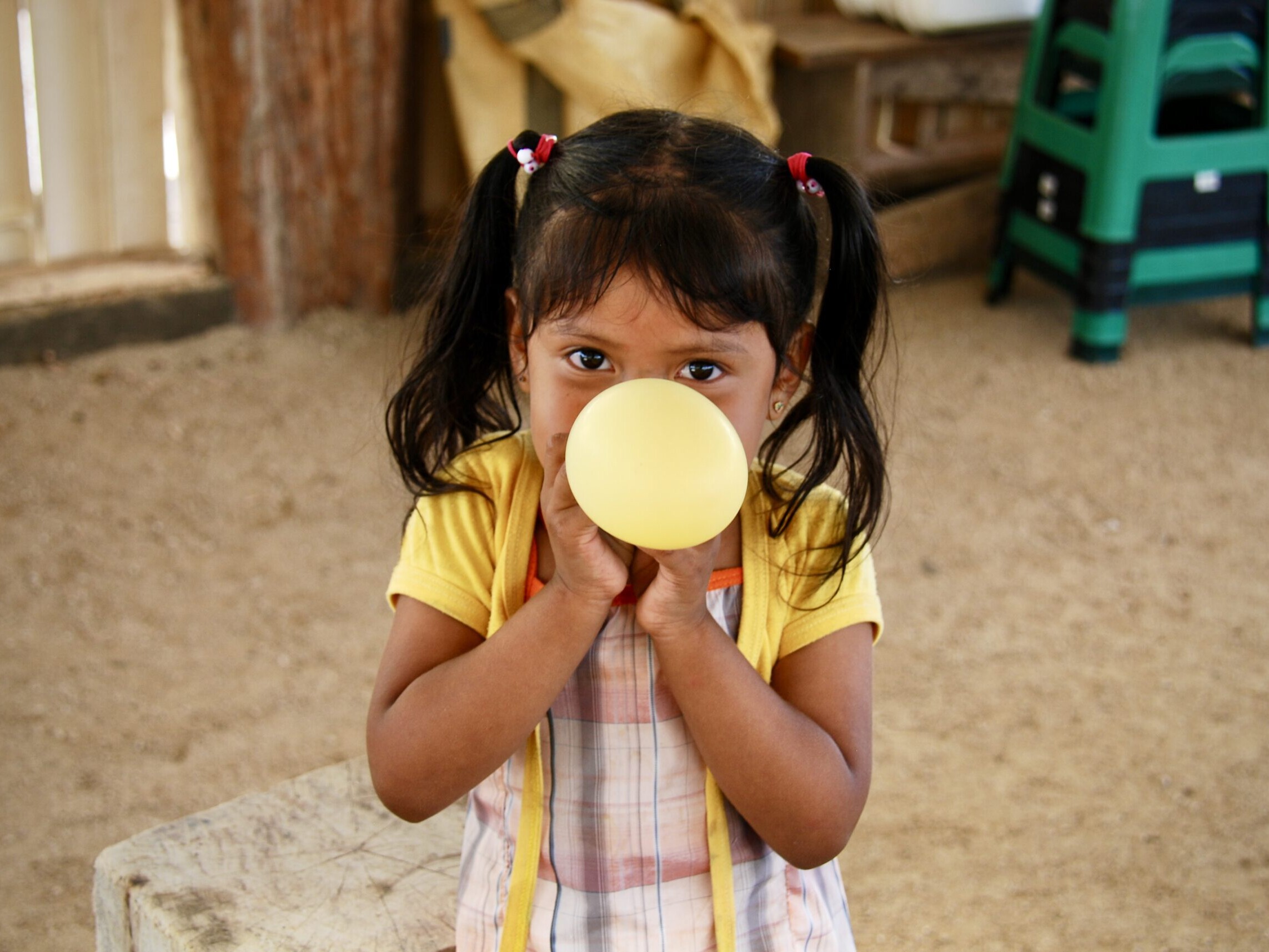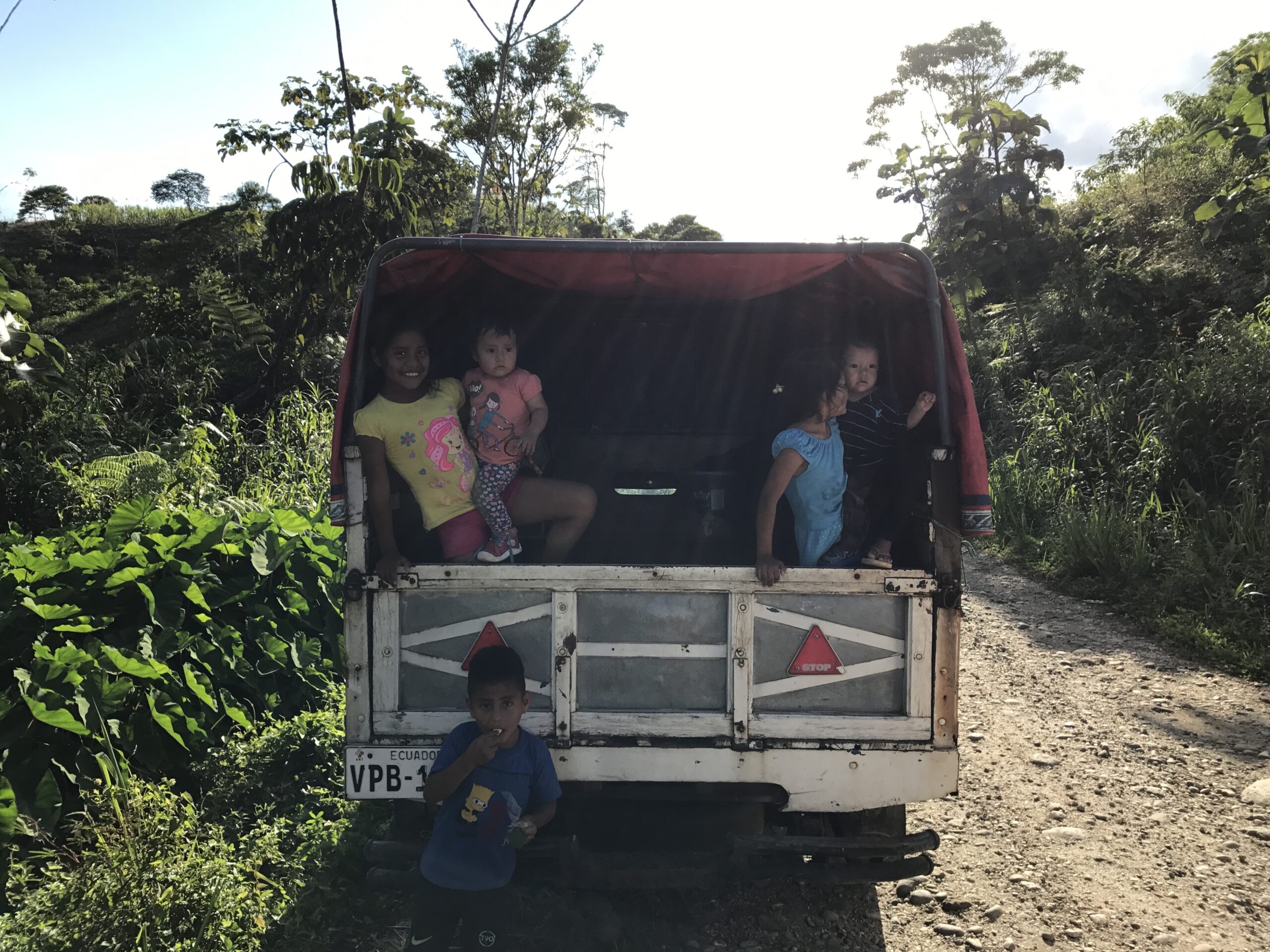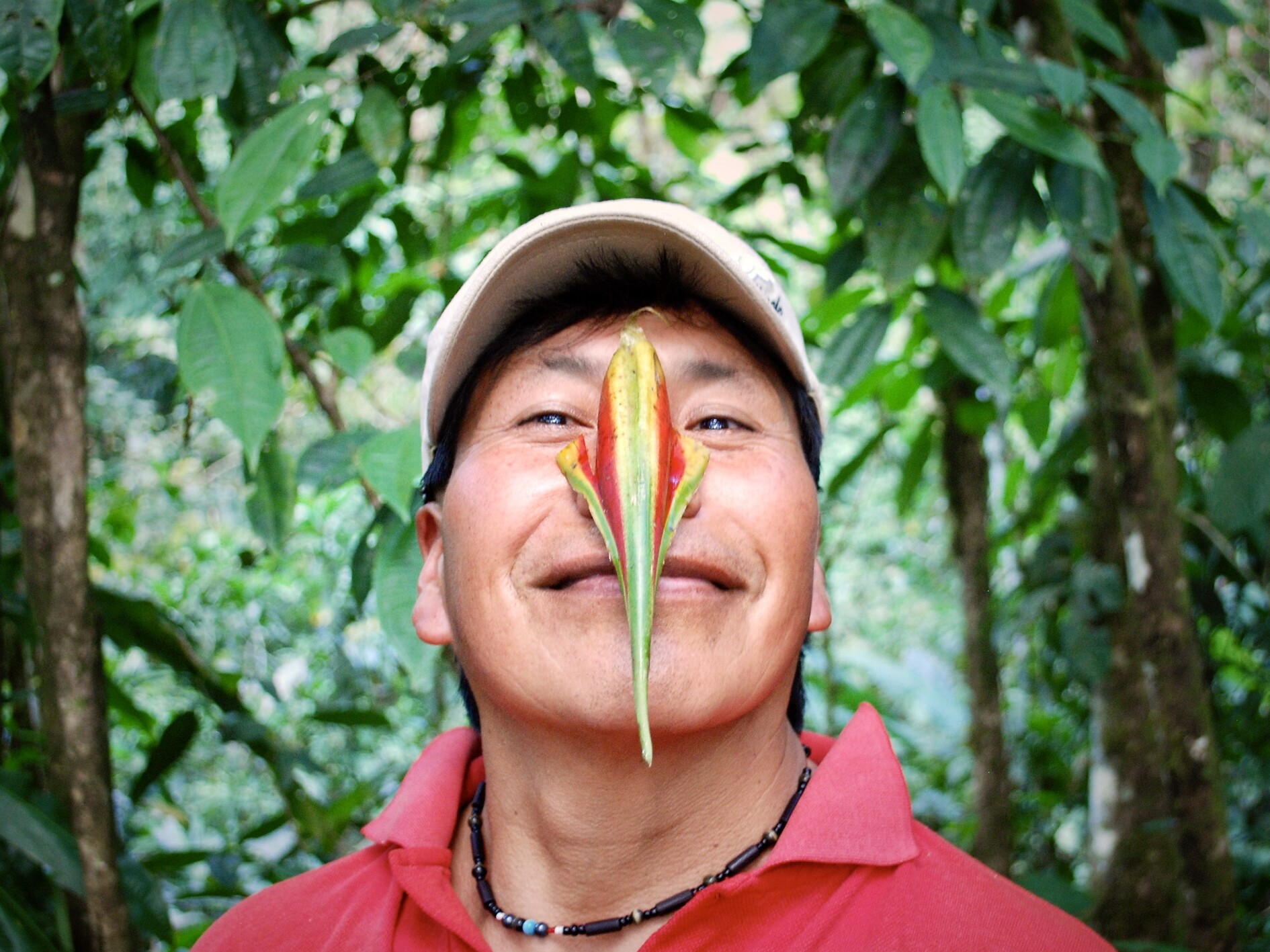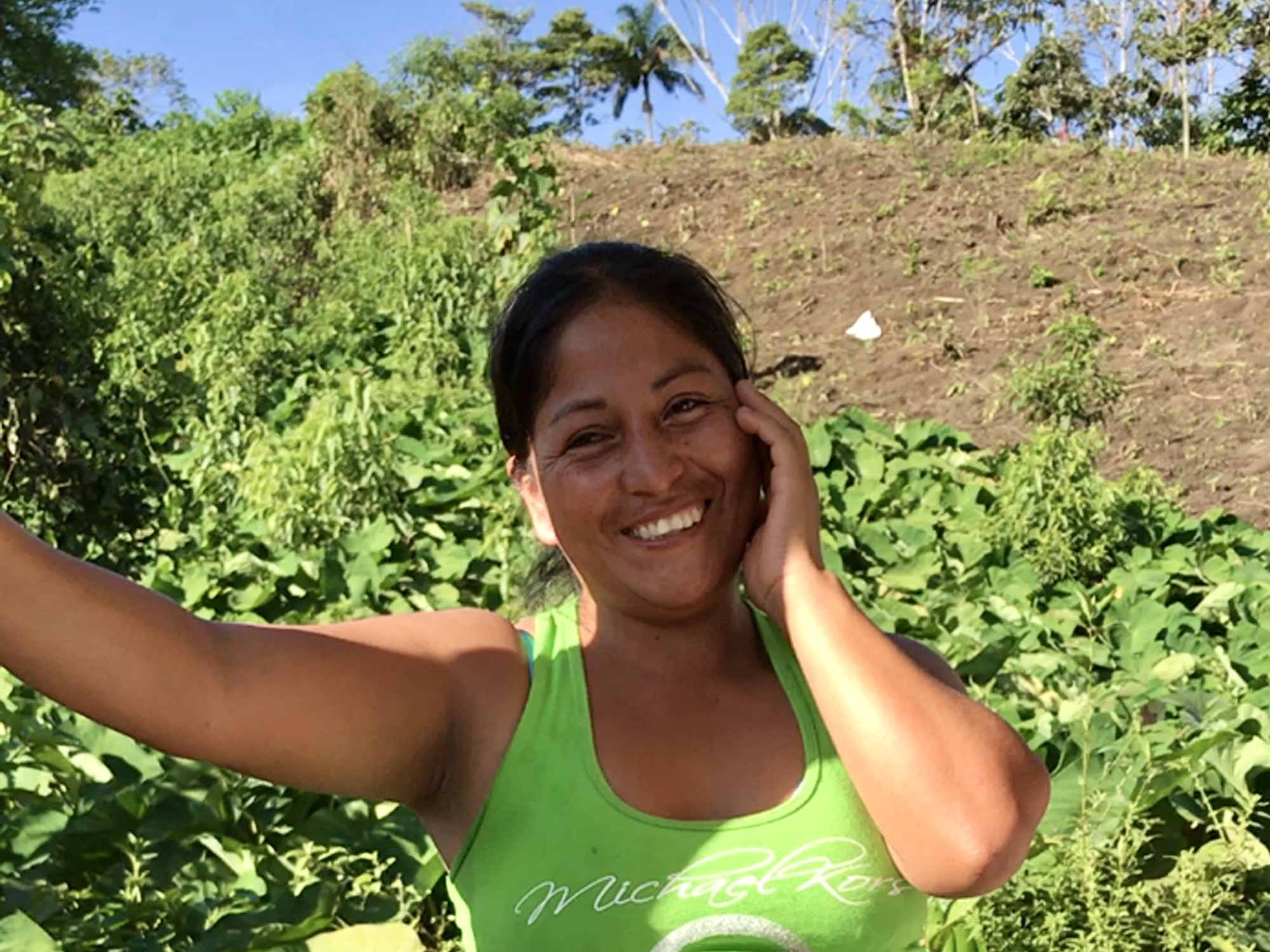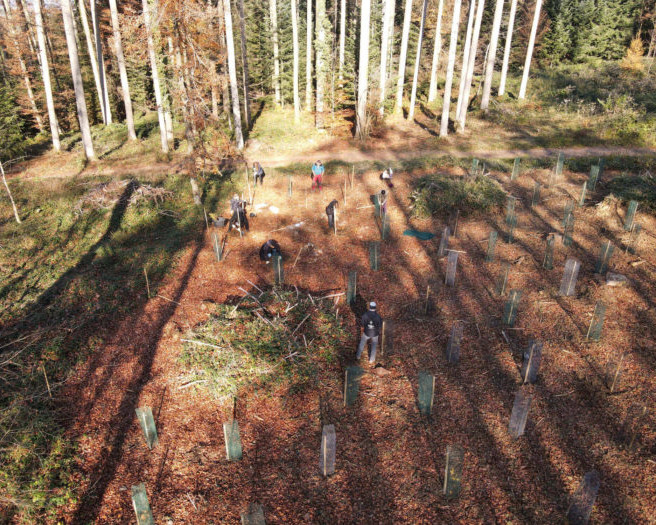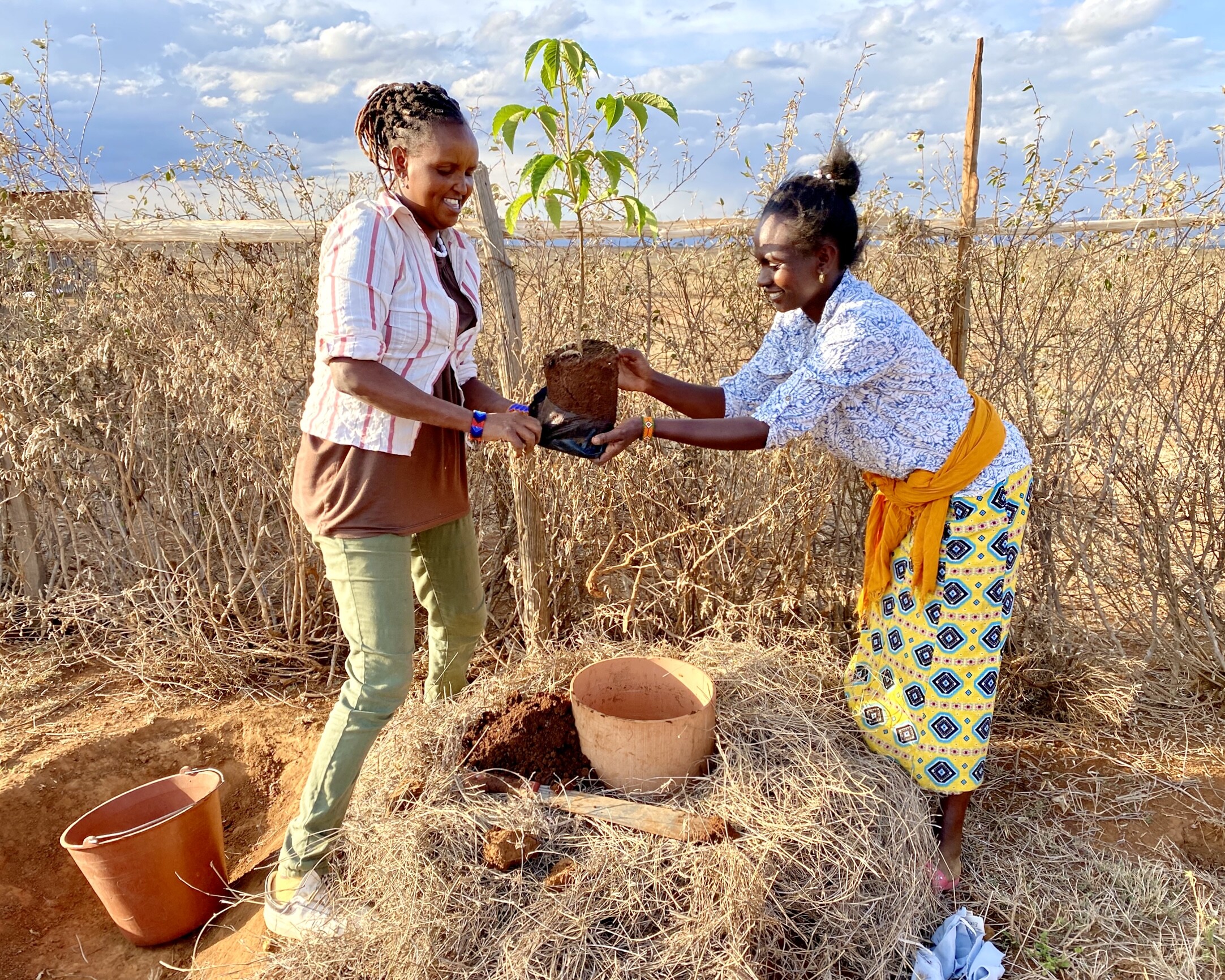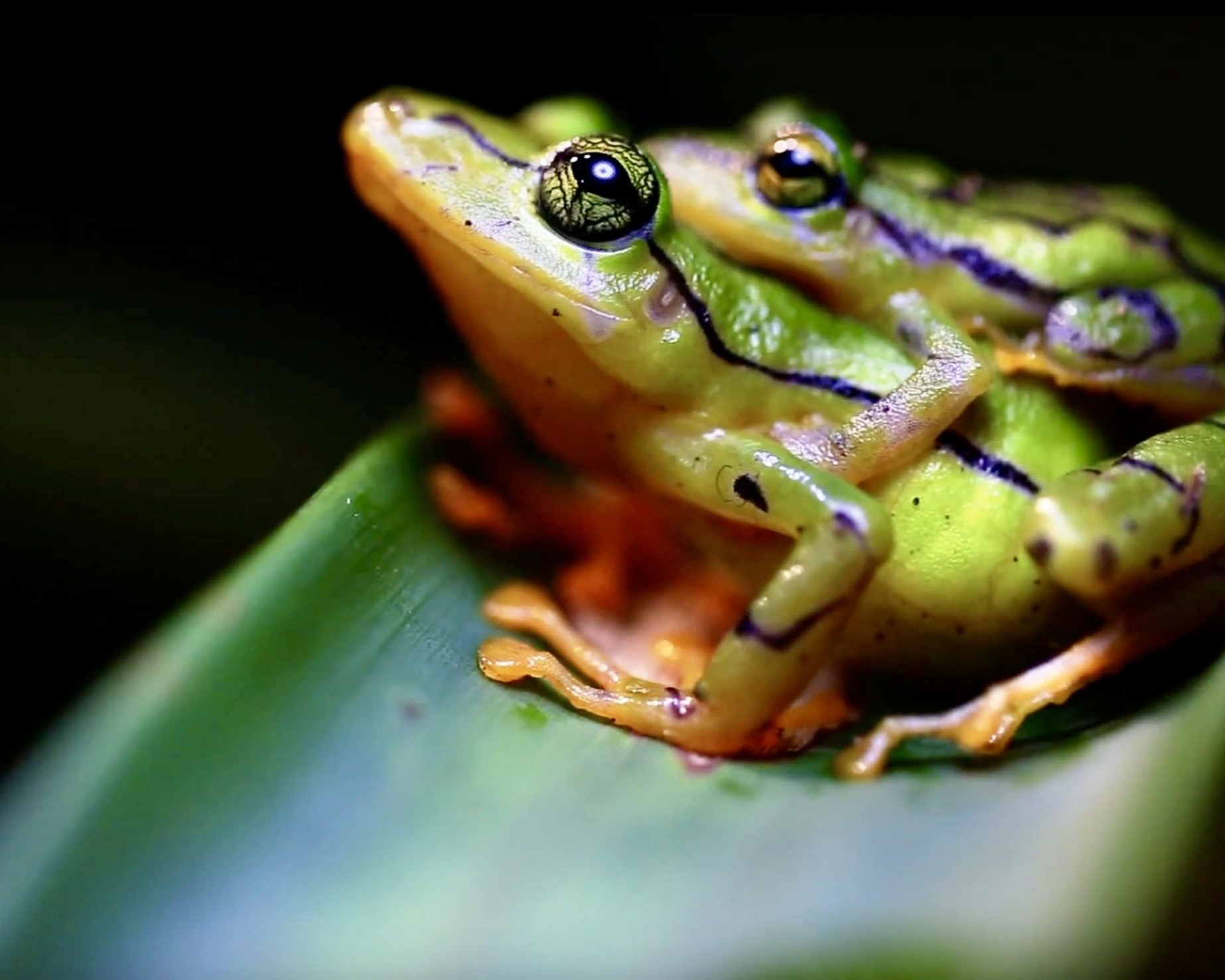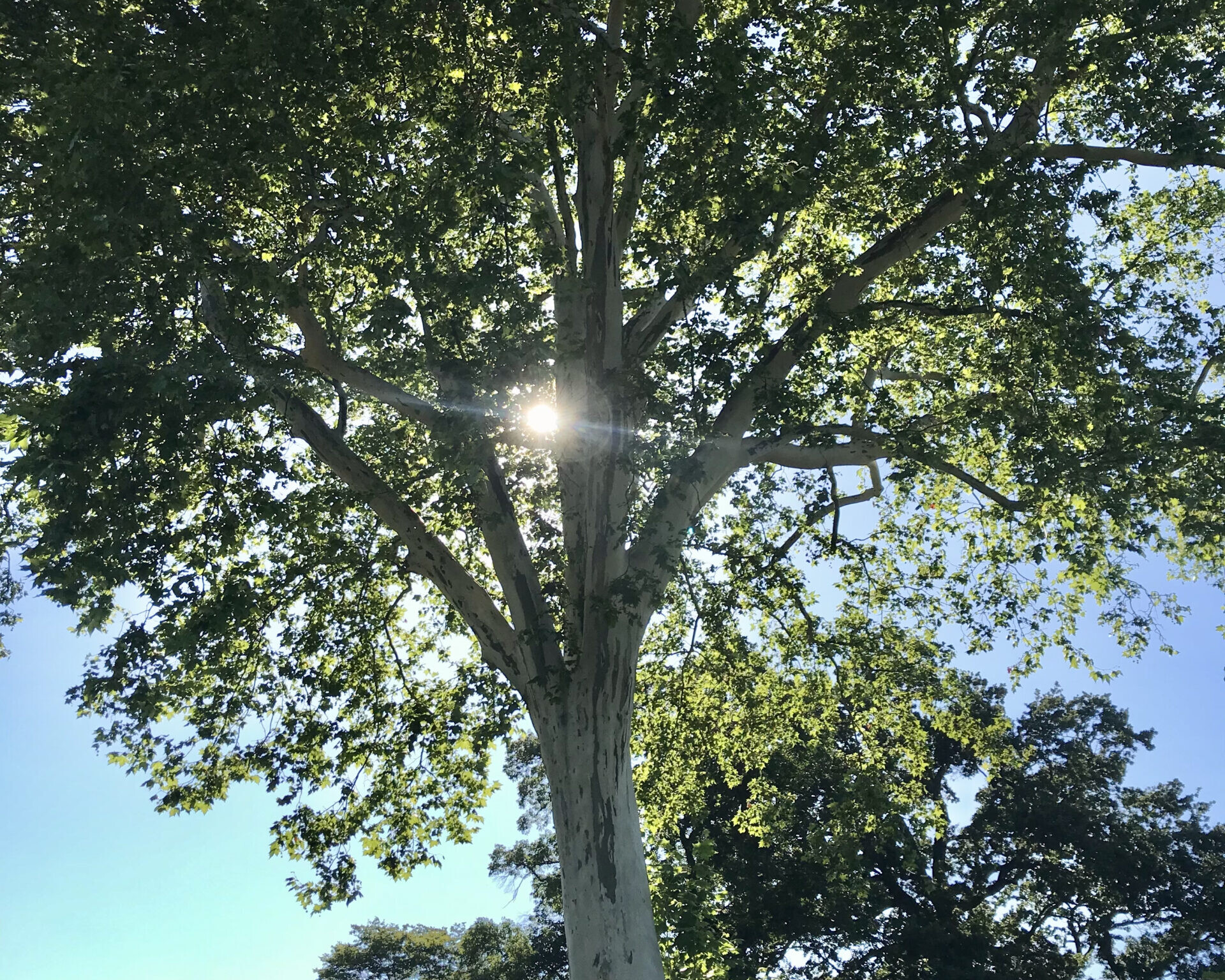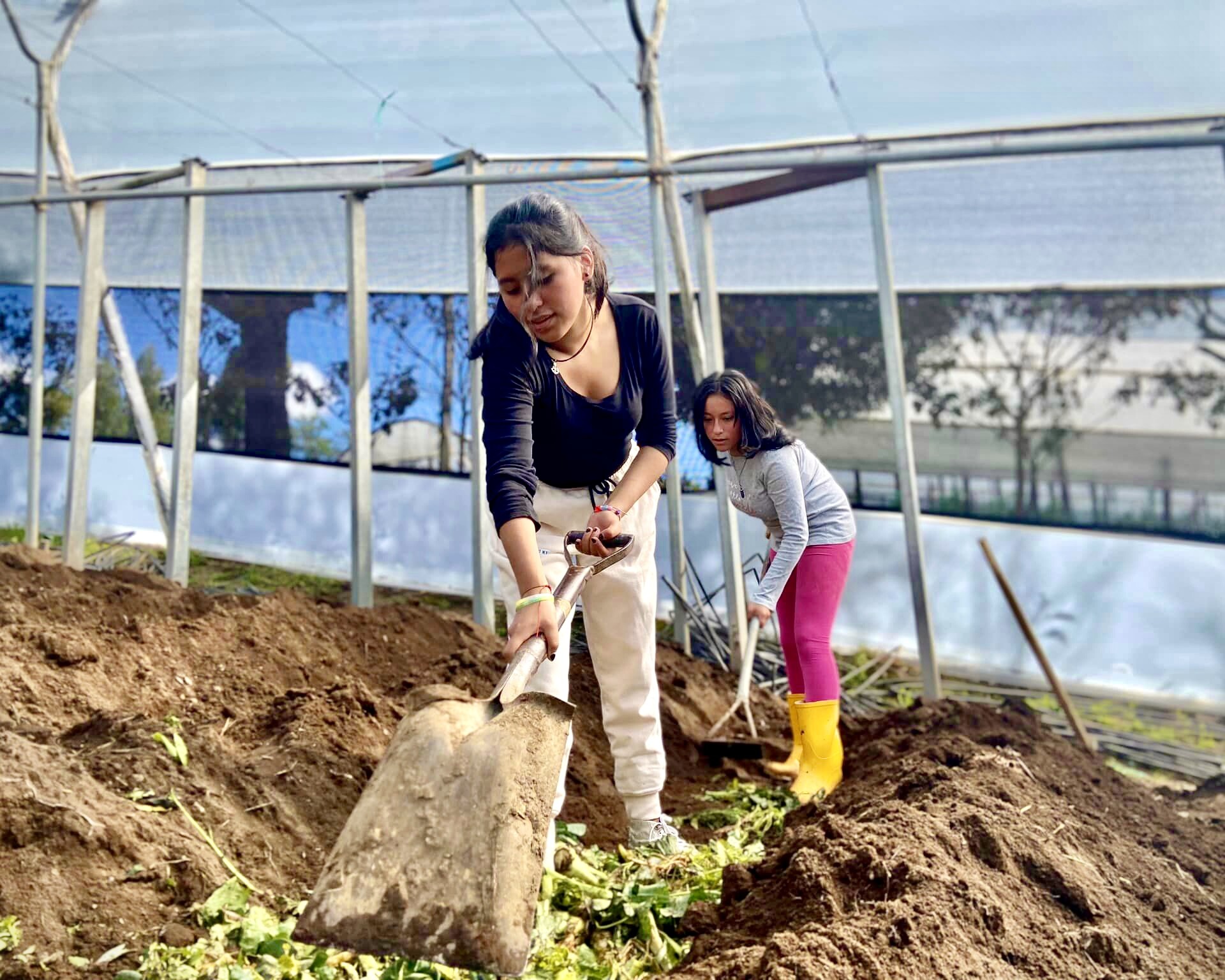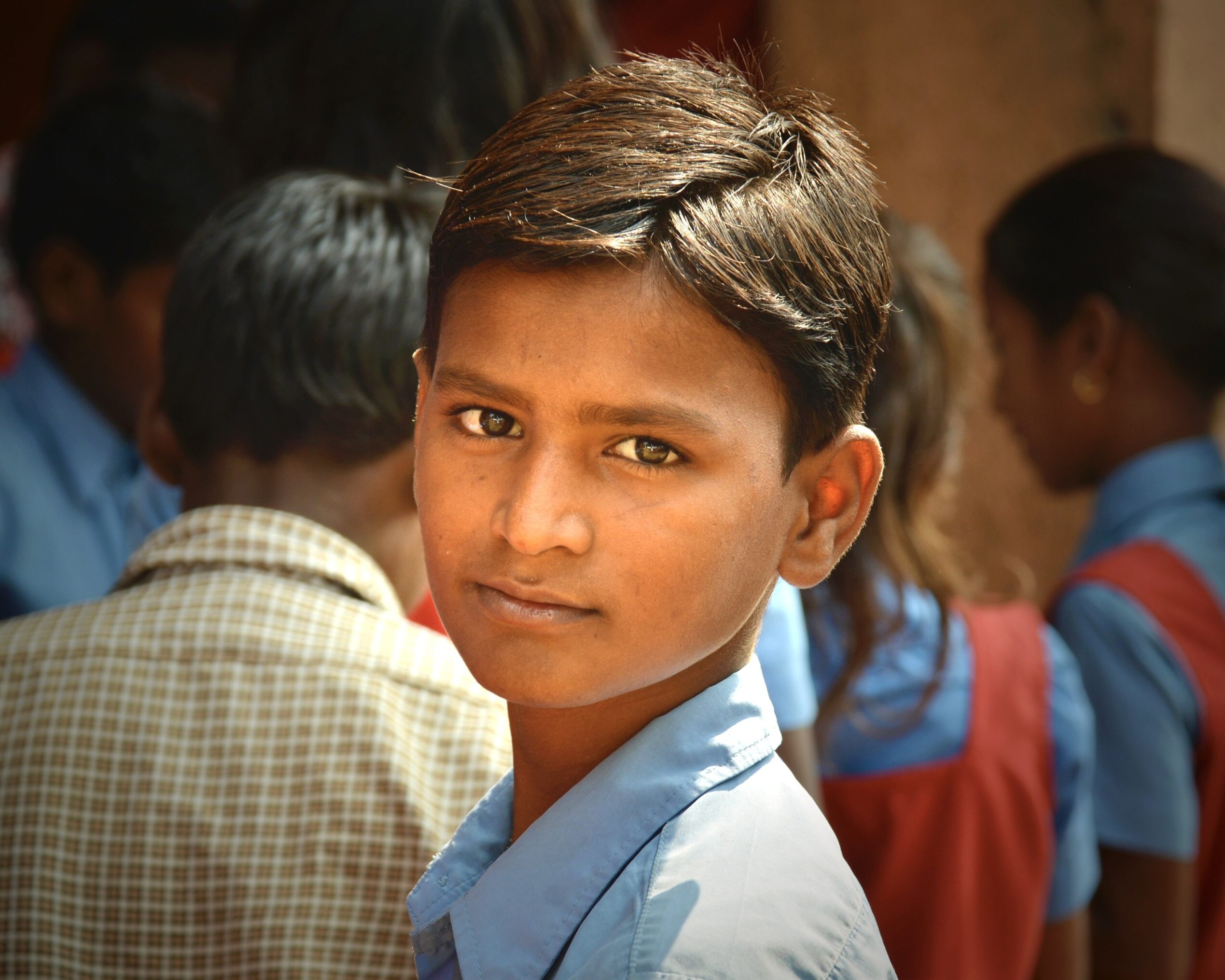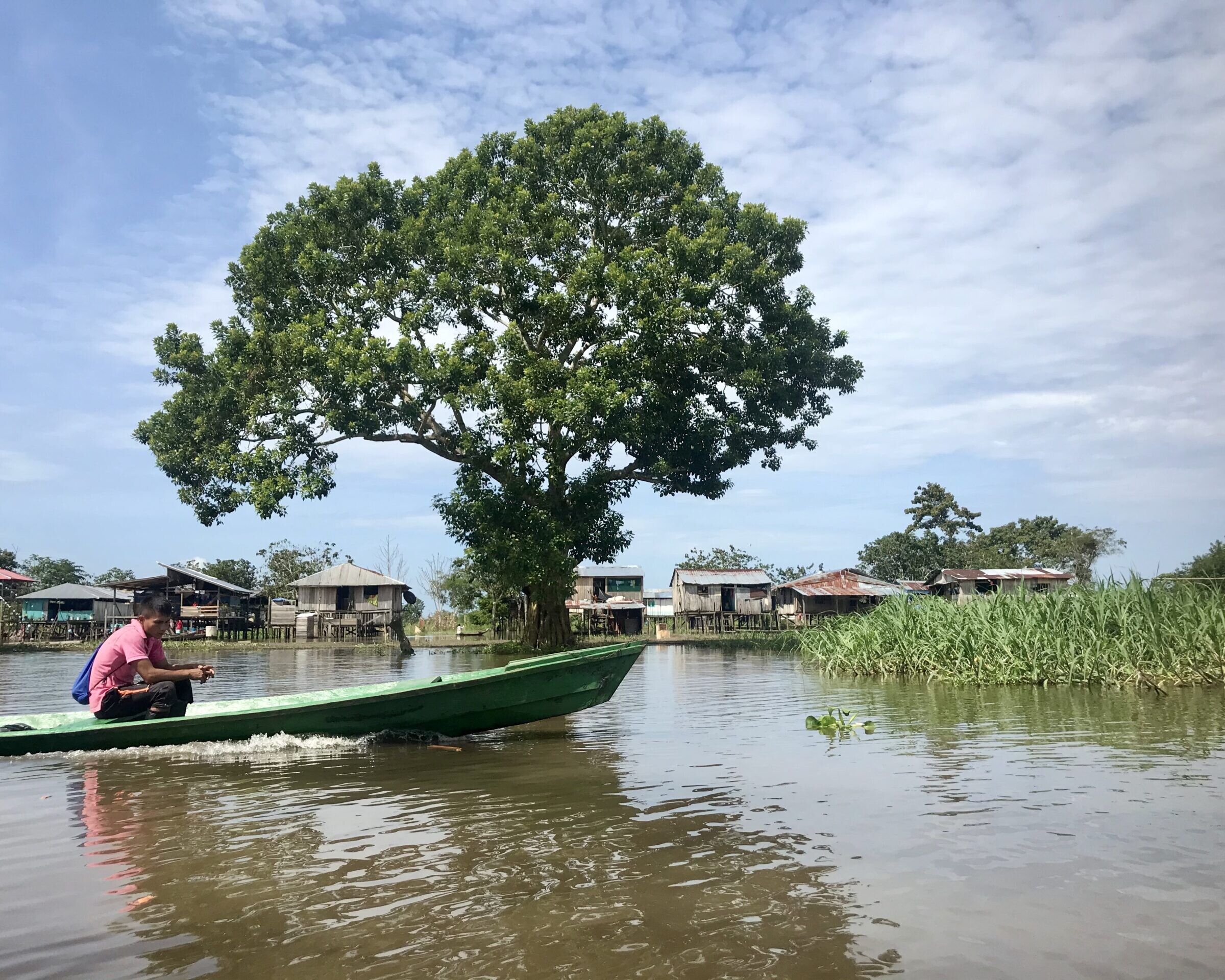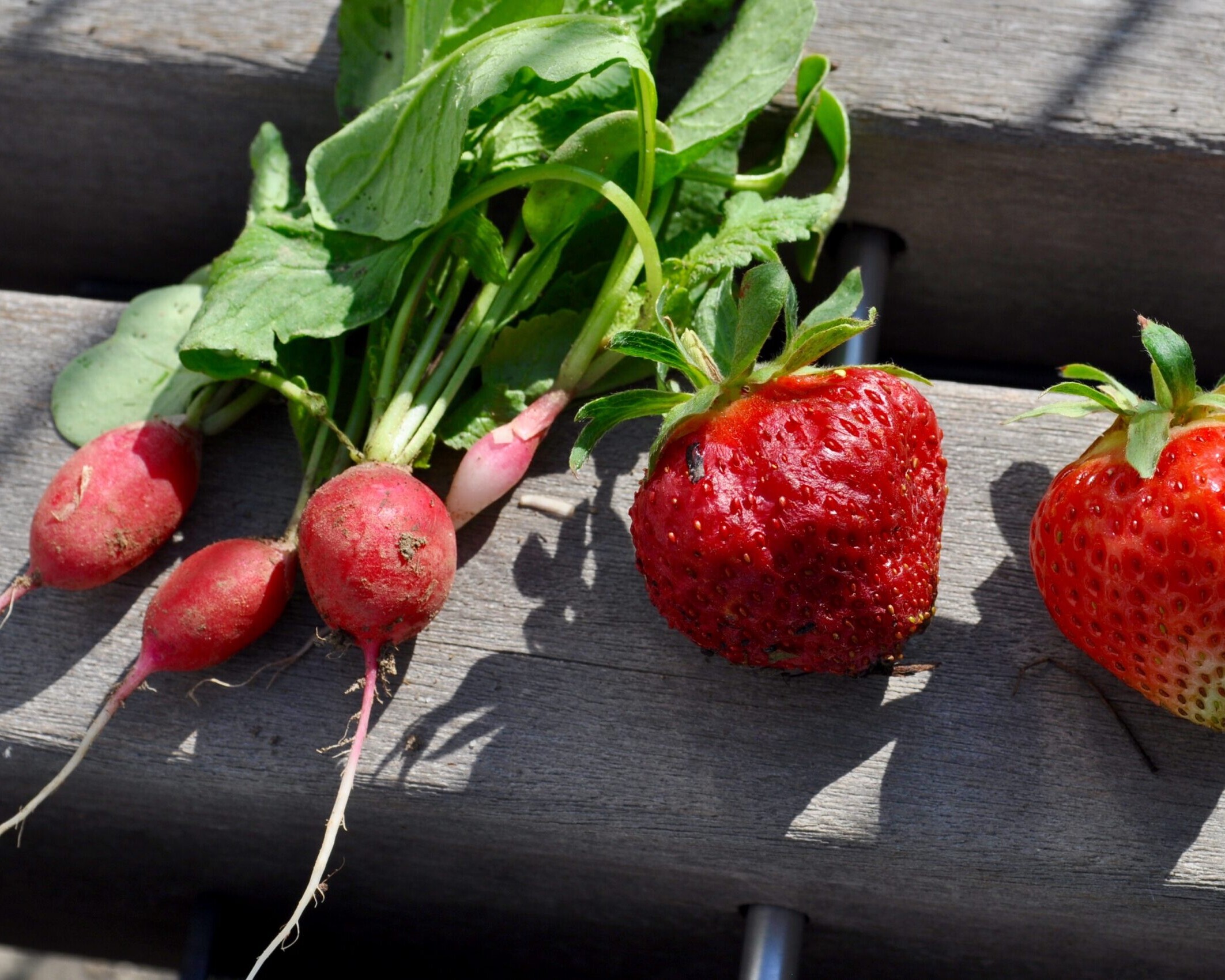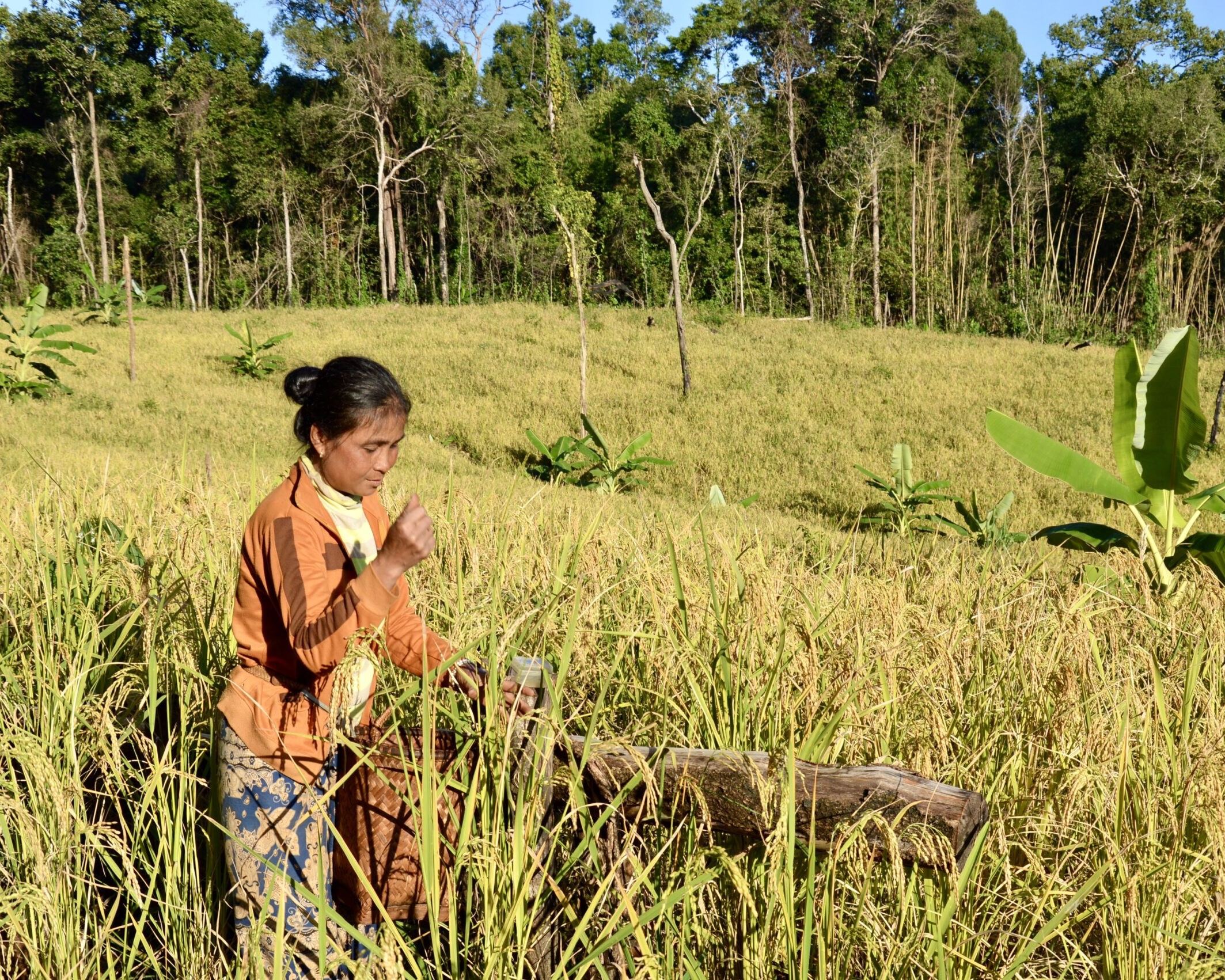Papa china en Amazonía
OneAction supported the empowerment of Amazonian women in the community of Cajabamba II, in the Ecuadorian province of Pastaza, by developing economic activities including a micro ecotourism project and the community cultivation of papa china, a food tuber also known as taro.
Location
Topics
Beneficiaries
Direct
15 women in charge of the project
35 members of their families
Indirect
60 community members
Impact
1 community hut built
2 hectares of papa china cultivated
32 tons of papa china produced in the first harvest
USD 2’500 generated from the sale of the first harvest
Context
In the Province of Pastaza in the Ecuadorian Amazon, increasing deforestation for the timber trade has become a major environmental issue. Aware of the regression of forest areas in their own environment, the leaders of the community of Cajabamba II have expressed the desire to develop economic alternatives that respect natural resources in order to stimulate community cohesion.
Our partner
OneAction collaborated with Vitalideas, an Ecuadorian organisation working in the field of sustainable development and, more specifically, for the conservation of natural resources and rural community development.
The project
OneAction, Vitalideas and community members have worked to develop sustainable economic alternatives to deforestation. The initiatives implemented have helped to preserve natural resources and bring community members together. OneAction first participated in the development of ecotourism activities by building a community hut near an ecolodge. This place, intended to welcome tourists, is used as a dining area where locals offer a taste of traditional Amazonian cuisine. Visitors then have the opportunity to plant native trees to participate in local reforestation efforts.
Subsequently, the women of the community have expressed a desire to start an agricultural crop in order to gain new financial resources and strengthen community cohesion. OneAction and Vitalideas therefore looked at potential opportunities for local organic crops and, in 2015, supported the community in creating a community crop of taro (colocasia esculenta), a tuber used in Amazonian cuisine.
The project in figures
2ha
Papa china crops
15
Women in charge of the project
1
Community hut built
32t
First harvest of papa china
USD2500
Income from the first harvest
60
Indirect beneficiaries
Expected outcomes
- A community hut was built in 2014 and is currently used as a reception centre for community members and tourists.
- Two groups of women from the community cultivate 2 hectares of land and harvested more than 32 tonnes of taro in the first harvest.
- The crops generate income, part of which is dedicated to the continuity and expansion of the project.
- The links between the participants and the community as a whole have been strengthened.
Sustainability
- The self-sufficiency of the project allows the women to develop the papa china crop over the long term, generating significant new income for the community.
- The community hut is fully managed by the community, and the produce sold in the restaurant is mainly from the village's own vegetable crops.
- Given the success of the project, OneAction has disengaged and is building on the model to explore opportunities for replication in other communities that may be interested.
"OneAction was a great help in getting our project started. This initiative has allowed us to form a close-knit group and has given us the strength to continue our efforts."
— Rosa Guambuguete, community group leader
Our projects
Together with its partners, OneAction develops initiatives to protect nature and empower communities. These initiatives are designed to be holistic, sustainable and locally owned. In most cases, self-financing mechanisms are included in order to create models that can be replicated in different contexts.
Tree planting in Switzerland
OneAction works to conserve the Western Andean Forest in the Intag Valley, one of the ten most biodiverse regions in the world.
Humus & humans
This agroforestry project uses the extraordinary potential of oxalogen species in inhabited areas among those most affected by climate change.
From the source to the forest
OneAction works to conserve the Western Andean Forest in the Intag Valley, one of the ten most biodiverse regions in the world.
Reunited under the canopy
OneAction creates public-private partnerships in Geneva and the Lake Geneva region to increase vegetation cover in urban areas.
The wings of knowledge
In Quito, OneAction is working with the INEPE to spread its internationally recognised holistic education model, while generating new sources of self-financing.
A future of possibilities
In Bihar, OneAction promotes access to quality education for children from the most disadvantaged backgrounds.
Tree planting in Switzerland
OneAction works to conserve the Western Andean Forest in the Intag Valley, one of the ten most biodiverse regions in the world.
Humus & humans
This agroforestry project uses the extraordinary potential of oxalogen species in inhabited areas among those most affected by climate change.
From the source to the forest
OneAction works to conserve the Western Andean Forest in the Intag Valley, one of the ten most biodiverse regions in the world.
Reunited under the canopy
OneAction creates public-private partnerships in Geneva and the Lake Geneva region to increase vegetation cover in urban areas.
The wings of knowledge
In Quito, OneAction is working with the INEPE to spread its internationally recognised holistic education model, while generating new sources of self-financing.
A future of possibilities
In Bihar, OneAction promotes access to quality education for children from the most disadvantaged backgrounds.
Tree planting in Switzerland
OneAction works to conserve the Western Andean Forest in the Intag Valley, one of the ten most biodiverse regions in the world.
Humus & humans
This agroforestry project uses the extraordinary potential of oxalogen species in inhabited areas among those most affected by climate change.
From the source to the forest
OneAction works to conserve the Western Andean Forest in the Intag Valley, one of the ten most biodiverse regions in the world.
Reunited under the canopy
OneAction creates public-private partnerships in Geneva and the Lake Geneva region to increase vegetation cover in urban areas.
The wings of knowledge
In Quito, OneAction is working with the INEPE to spread its internationally recognised holistic education model, while generating new sources of self-financing.
A future of possibilities
In Bihar, OneAction promotes access to quality education for children from the most disadvantaged backgrounds.
Our projects
Together with its partners, OneAction develops initiatives to protect nature and empower communities. These initiatives are designed to be holistic, sustainable and locally owned. In most cases, self-financing mechanisms are included in order to create models that can be replicated in different contexts.
Tree planting in Switzerland
OneAction works to conserve the Western Andean Forest in the Intag Valley, one of the ten most biodiverse regions in the world.
Humus & humans
This agroforestry project uses the extraordinary potential of oxalogen species in inhabited areas among those most affected by climate change.
From the source to the forest
OneAction works to conserve the Western Andean Forest in the Intag Valley, one of the ten most biodiverse regions in the world.
Reunited under the canopy
OneAction creates public-private partnerships in Geneva and the Lake Geneva region to increase vegetation cover in urban areas.
The wings of knowledge
In Quito, OneAction is working with the INEPE to spread its internationally recognised holistic education model, while generating new sources of self-financing.
A future of possibilities
In Bihar, OneAction promotes access to quality education for children from the most disadvantaged backgrounds.
Past projects
Here are some of OneAction’s past projects.
Madera plástica
Inspired by a successful model developed in Medellín, OneAction aims to provide a solution to the accumulation of plastic waste in affected areas by transforming it into a building material.
GreenAction
OneAction developed pedagogical gardens in several schools in French-speaking Switzerland to strengthen the connection between students and nature.
Conservation in Mondulkiri
OneAction developed economic alternatives to deforestation to protect the Seima forest and empower the Bunong minority in Mondulkiri.
Conservation in Mondulkiri
OneAction developed economic alternatives to deforestation to protect the Seima forest and empower the Bunong minority in Mondulkiri.
GreenAction
OneAction developed pedagogical gardens in several schools in French-speaking Switzerland to strengthen the connection between students and nature.
Madera plástica
Inspired by a successful model developed in Medellín, OneAction aims to provide a solution to the accumulation of plastic waste in affected areas by transforming it into a building material.
Conservation in Mondulkiri
OneAction developed economic alternatives to deforestation to protect the Seima forest and empower the Bunong minority in Mondulkiri.
GreenAction
OneAction developed pedagogical gardens in several schools in French-speaking Switzerland to strengthen the connection between students and nature.
Madera plástica
Inspired by a successful model developed in Medellín, OneAction aims to provide a solution to the accumulation of plastic waste in affected areas by transforming it into a building material.
Past projects
Here are some of OneAction’s past projects.
Madera plástica
Inspired by a successful model developed in Medellín, OneAction aims to provide a solution to the accumulation of plastic waste in affected areas by transforming it into a building material.
GreenAction
OneAction developed pedagogical gardens in several schools in French-speaking Switzerland to strengthen the connection between students and nature.
Conservation in Mondulkiri
OneAction developed economic alternatives to deforestation to protect the Seima forest and empower the Bunong minority in Mondulkiri.
Conservation in Mondulkiri
OneAction developed economic alternatives to deforestation to protect the Seima forest and empower the Bunong minority in Mondulkiri.
GreenAction
OneAction developed pedagogical gardens in several schools in French-speaking Switzerland to strengthen the connection between students and nature.
Madera plástica
Inspired by a successful model developed in Medellín, OneAction aims to provide a solution to the accumulation of plastic waste in affected areas by transforming it into a building material.
Conservation in Mondulkiri
OneAction developed economic alternatives to deforestation to protect the Seima forest and empower the Bunong minority in Mondulkiri.
GreenAction
OneAction developed pedagogical gardens in several schools in French-speaking Switzerland to strengthen the connection between students and nature.
Madera plástica
Inspired by a successful model developed in Medellín, OneAction aims to provide a solution to the accumulation of plastic waste in affected areas by transforming it into a building material.



